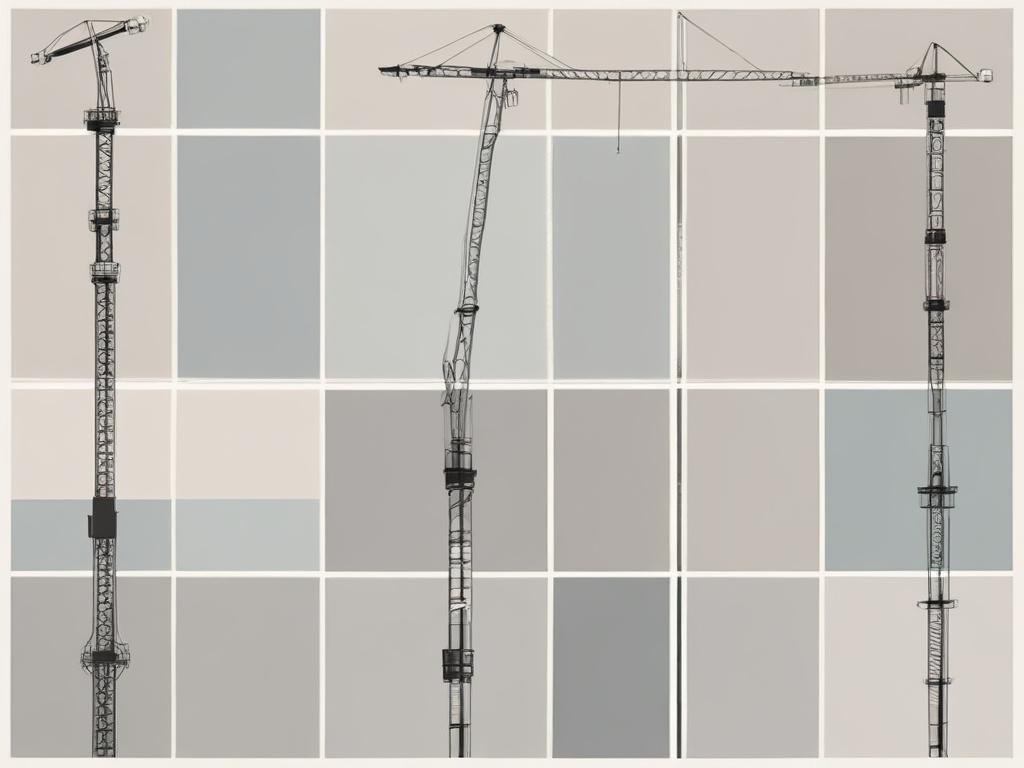
Cranes play a vital role in construction and heavy lifting, serving various industries with unique capabilities. Understanding the different crane categories is essential for project managers, engineers, and contractors alike, as each type is designed to meet specific lifting needs and operational environments.
This complete guide will offer an overview of the different categories, helping you navigate the complexities of crane selection and application for your projects.
Crane categories encompass diverse machinery, each designed to meet specific lifting and construction needs. Understanding these different categories is crucial for selecting the right equipment for various projects. Cranes can be broadly divided into mobile, fixed, and specialty cranes, each offering unique functionalities and applications. This guide aims to provide an overview of these categories, enabling project managers and construction teams to make informed decisions about crane selection.
Each crane category has its strengths. Mobile cranes are versatile and offer flexibility in maneuverability, making them ideal for construction sites with varying terrains. In contrast, fixed cranes provide stability and are designed for specific locations, offering powerful lifting capacities for heavy materials. Specialty cranes, on the other hand, cater to niche requirements and include types like tower cranes and floating cranes.
Mobile cranes are versatile lifting machines designed for easy transport and quick setup at construction sites. These cranes can be mounted on various chassis, including trucks and crawlers, allowing them to navigate multiple terrains. Their compact design makes them ideal for urban environments where space is often limited. Mobile cranes come with various attachments, such as hooks, buckets, and personnel baskets, enhancing their functionality and adaptability across different projects. Operators appreciate mobile cranes' ability to lift heavy loads and reach substantial heights, making them indispensable in construction, maintenance, and demolition tasks.
The applications of mobile cranes vary widely, catering to industries such as construction, manufacturing, and logistics. In construction, they assist in hoisting materials like steel beams and concrete panels, facilitating the building process. In manufacturing, mobile cranes help move heavy equipment and parts within factories. Additionally, mobile cranes prove invaluable in logistics, where they efficiently unload containers from ships and trucks. Their ability to quickly relocate from one job site to another makes mobile cranes an essential contractor resource, enhancing productivity while ensuring safety.
Fixed cranes are essential in construction and industrial settings, providing stability and strength for heavy lifting tasks. These cranes remain stationary during operation, making them particularly effective for sites where heavy loads must be hoisted vertically and moved horizontally. Various types of fixed cranes include tower cranes, bridge cranes, and gantry cranes, each designed for specific functionalities and applications. Tower cranes, for instance, often dominate construction skylines, offering a tall, slender design that enables them to lift heavy materials high above buildings. In contrast, bridge cranes operate on a rail system, allowing them to move equipment and materials across large spans within warehouses and manufacturing facilities.
Each type of fixed crane has unique advantages, making it ideal for different operational needs. Tower cranes excel in urban construction projects due to their impressive reach and lifting capacity, making them indispensable for high-rise buildings. On the other hand, bridge cranes maximize efficiency in indoor settings, facilitating the quick transfer of heavy items across extensive warehouse floors. Gantry cranes, commonly found in shipyards and container terminals, provide versatility in moving loads vertically and horizontally, making them crucial for large-scale industrial operations.
Then, contact the experts at T&M Cranes. Our team has been family-owned and operated since 1974 and specializes in overhead cranes, hoists, parts, and ongoing service. Our decades of experience make us confident we can help you with any type of lifting equipment or hoist repair.